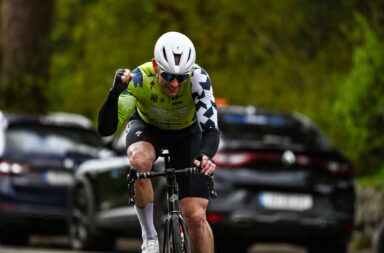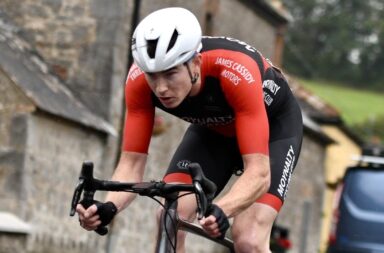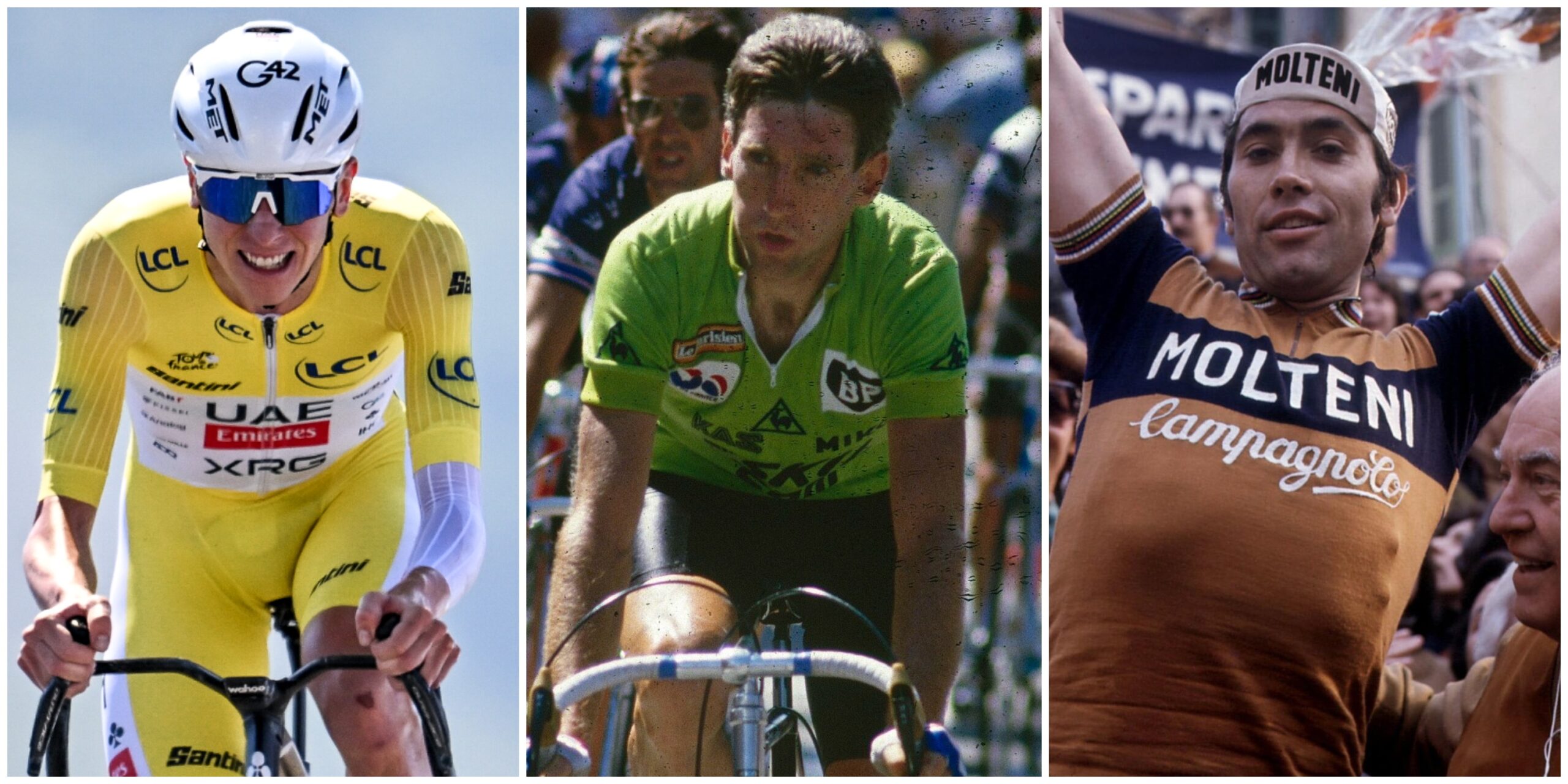
Sean Kelly’s career overlapped with the great Eddy Merckx. Indeed, the Irishman’s second victory as a pro – at Circuit de l’Indre in France in 1977 – came at the expense of the legendary Belgian. Merckx was in his last full season, though still aged just 31 years, while Kelly had celebrated his 21st birthday the previous day.
In conversation with stickybottle, Kelly spoke of riders’ ages, the length of their careers and just how long they can stave off boredom and stay hungry. Kelly thinks Tadej Pogačar is now much, much closer to the end of his career than most people realise, including his own team.
Pogačar’s contract with UAE Team Emirates XRG runs 2030. Kelly believes that timeframe is unrealistic. At a minimum, he says, Pogačar will not, in five years time, be anything close to the rider he is today, in the unlikely event he is still racing.
When stickybottle put it to Kelly that Pogačar could go on to win the next five editions of the Tour de France, he was adamant that would not happen. “No, no. I think a time will come when he’ll get bored and he’ll say ‘I’m finished’. He’s been in there since he was so young that I don’t think he’ll go on for a long career.”
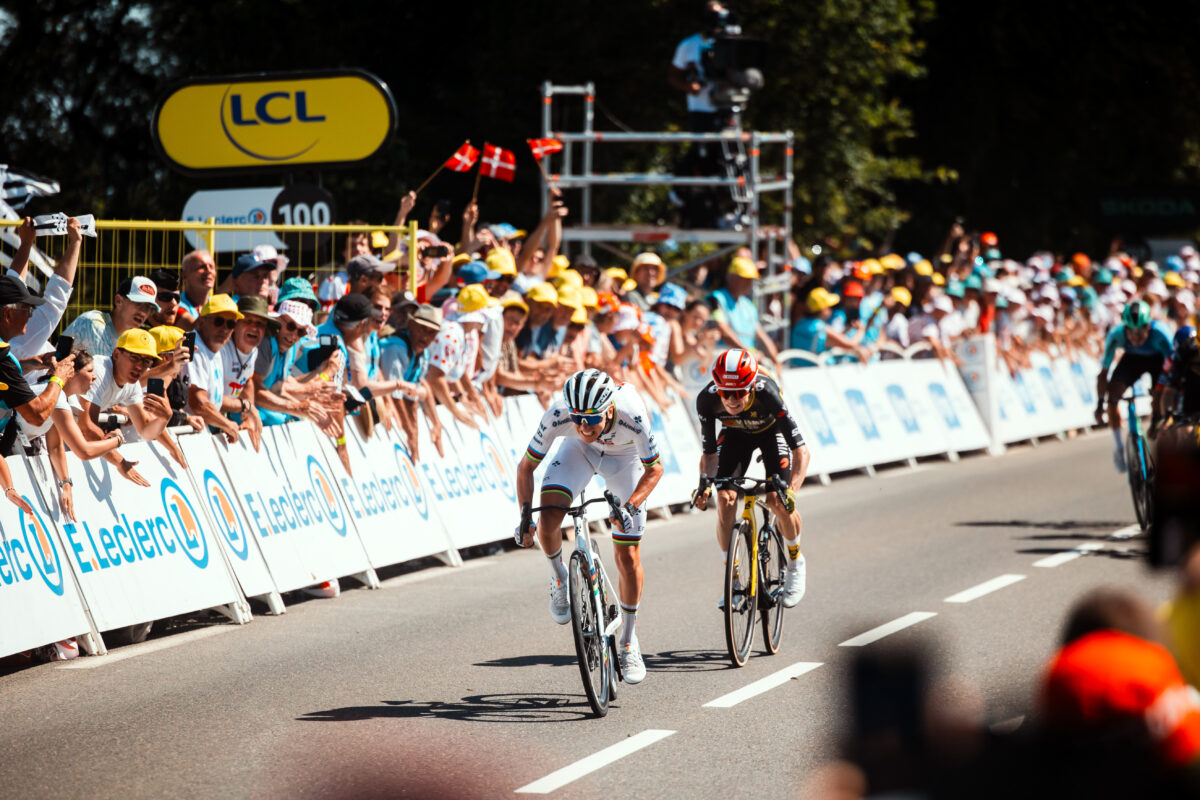
However, in a man-on-man battle, Kelly said Jonas Vingegaard had no chance of beating Pogačar at the Tour. The only way he could win was if his team mate, Matteo Jorgenson, could reach a standard to possibly win the Tour so that he and Vingegaard could work over Pogačar and exhaust him.
But Kelly said Jorgenson had a “disappointing” Tour and though he went on the attack, he was “not good enough” to keep those moves going and make them count. Kelly added Jorgenson and Pogačar appeared to be having a constant low level dispute, or “niggle”, through the Tour, which meant every time the American went on the attack UAE Team Emirates XRG made sure “he didn’t get too far”.
Pogačar may be done in three years
Pogačar (26) is perhaps the greatest endurance athlete alive. But that talent – even combined with his work ethic and his sheer willingness to go all out in every race – won’t see him eclipse the achievements of Merckx, Kelly said. And that is despite the fact Pogačar is now at the age when, historically, riders only start coming into their peak years.
Kelly likened Pogačar to Mathieu van der Poel (Alpecin-Deceuninck); both only interested in full-on racing efforts that taxed the mind and body. It was a racing style that would not lend itself to a very long career, especially when combined with the training efforts – and personal sacrifices – required to reach the physical peaks demanded of them.
“I’d say he has another three years in him but after that…. Will he be able to keep his focus and will he want to continue? I could see, maybe, with another three more years he might say to himself ‘well, that’s enough.'”
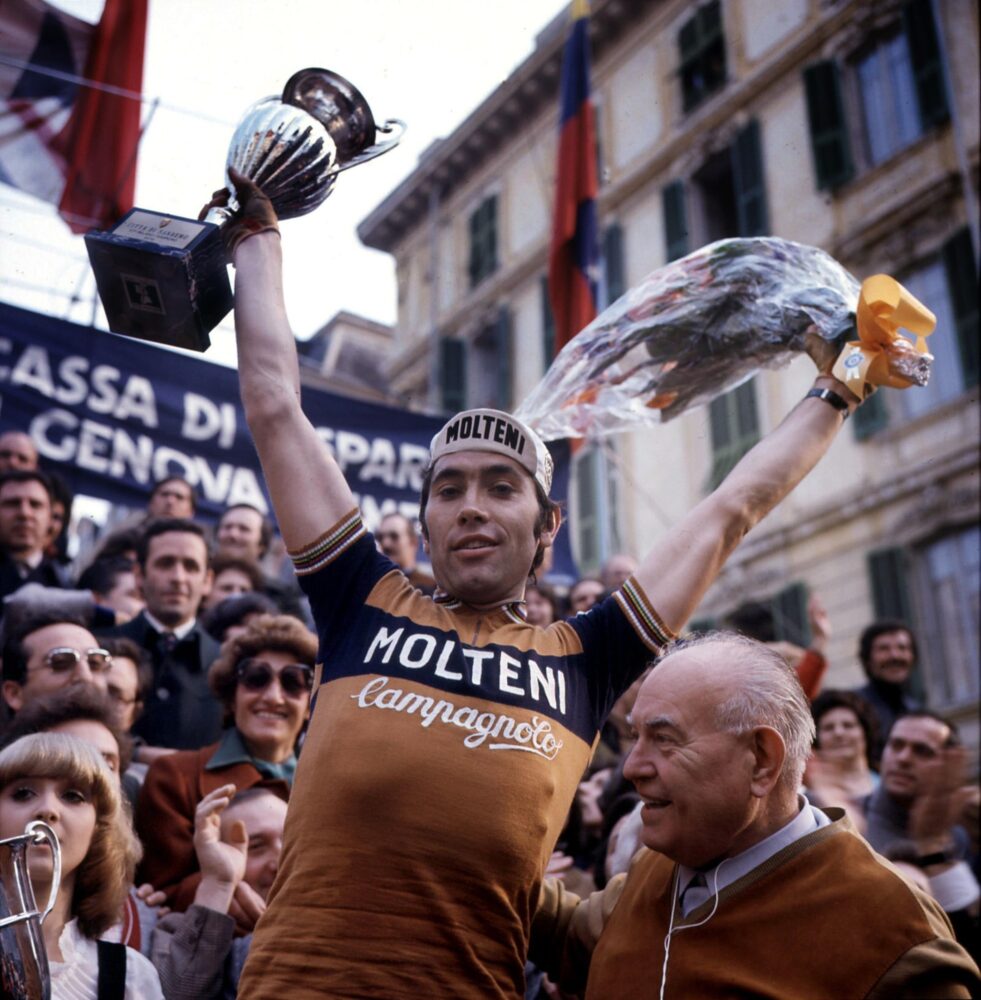
Kelly believes Pogačar is more talented than Merckx was; an incredible statement considering Merckx was a pro for 12 full seasons and won 11 Grand Tours, among 279 career victories. Pogačar, now in his seventh season as a pro, has won five Grand Tours and has 109 wins overall.
Kelly said, as good as Pogačar is – the most talent, and best, racer ever – he will simply not compete for long enough to surpass Merckx.
“Merckx, in the mountains, was a guy who struggled a bit, he was a bit like Indurain at times; grinding away in the mountains to limit his losses to the lightweight guys. But then he’d kill them on the flat and in the time trials.”
However, Pogačar was “riding away from the best climbers”, often matching the best TT riders in flat TTs and beating everyone in mountain tests. He was able to win from the start of the season, could win classics, ride in crosswinds and easily handle himself in often “crazy” nervous racing, especially early in the Tours.
“For outright talent, Pogačar is definitely better than Merckx,” Kelly said. “But will he beat Merckx’s record? That’s another question. He’d have to do a lot of years to match that record. In the Tour, he will. But then you have to look at the Giro, the Vuelta, so many races.”
Merckx won the Giro five times, Vuelta once, five Tours, 34 Tour stages, the Worlds and Paris-Roubaix three-times each, Milan-Sanremo seven times and Paris-Roubaix three times, among his very lengthy palmares.
Kelly said people often pointed out today’s busiest riders may do between 80-90 race days per year, compared to 160 when he and Merkcx were racing. But he believed that overlooked the pressures on the riders of the current era.
When days on the road at training camps, recons and altitude camps were included, the riders of today were doing just as many days with significant load, Kelly said. The only difference now was that more of that load was piled on away from home training rather than away from home racing.
Furthermore, riders were now under more pressure in December and January to train and make personal sacrifices towards peaking from the very strat of the season compared with the more relaxed approach years ago.
